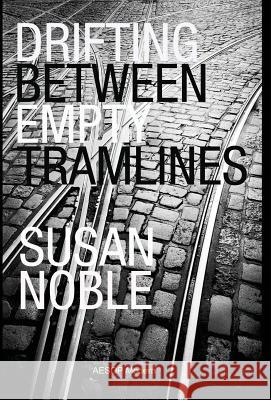Drifting Between Empty Tramlines » książka
Drifting Between Empty Tramlines
ISBN-13: 9781910301067 / Angielski / Twarda / 2014 / 242 str.
Drifting Between Empty Tramlines focuses on the lives of a group of twenty-something women in the fictional town of Bridchester near Hull in the East Riding of Yorkshire in the 1970s. It was written in 1972 by Susan Noble, who died in 1974 at the age of 31. During the late 1960s and early 1970s, Susan worked in London, first at the Royal National Institute for the Blind and later at the National Central Library. Like the Bridchester Records Office in the novel, the NCL - based in Store Street, not far from the British Museum Library - was not open to the public. The atmosphere of the fictional records office, with all its gossip and backbiting, was almost certainly based on that of Susan's daily working life; the office forms the backdrop to the social, cultural, intellectual and emotional concerns of the central characters who grapple with a range of issues from mental illness to marriage and motherhood, their relationships, affairs and break-ups, their preoccupations over work and creativity, conflicts between feminism and traditional family roles, and between academia and 'lived experience'. And above all, throughout the novel, the question of what they should be doing with their lives. While it isn't hard to see traces of Jane Austen in its moral and social satire, Drifting Between Empty Tramlines also has elements of Bildungsroman and novels of ideas. The main protagonists - Anna, Margot, Paula, Alison, Dana and June - embody some of the defining concerns and issues for women during the tumultuous period of transition between the 1950s and 1970s, but in a much more autobiographical sense, each of these characters strikingly reflects different aspects of Susan's own personality. There are also intense moments of the kinds of spiritual perception and longing that may be found in her poems. Ultimately, though, the lives of these characters are all, in different ways, subverted by a sense of motivational uncertainty, which the novel's title so vividly expresses. Susan's output of fiction and poetry in the final ten years of her life was prolific and to mark the fortieth anniversary of her death, Drifting Between Empty Tramlines is being published in hardback, paperback and Kindle for the first time, along with four volumes of her poetry, The Dream of Stairs: A Poem Cycle; Inside the Stretch of My Heart; Before and After the Darkness; and Collected Poems, as well as a selection of her short stories and novellas, A Flock of Blackbirds. Profits from the sales of all six volumes are being donated to three charities: Mind, the Samaritans and Sane. Facsimiles of the original typescripts and manuscripts are available online at: www.aesopbooks.com/susannoble About the author Brought up in South London, Susan was the second of three children. Her childhood was enriched by being part of our large and closely-knit Jewish family. Unfortunately stricken by polio (then known as infantile paralysis) in her early years, Susan went through life with a degree of physical handicap which she was to overcome with courage and determination. Educated at Croydon High School, Susan studied English at Somerville College, Oxford. After graduating, Susan worked in London, first at the Royal National Institute for the Blind, dictating books for transcription into Braille, and later at the National Central Library in London, where she qualified as a Chartered Librarian. Susan's exceptional sensitivity was reflected not only in the intense outpouring of poems to be found in The Dream of Stairs, Inside the Stretch of My Heart, and Before and After the Darkness, but also in the novel Drifting Between Empty Tramlines and the short story collection A Flock of Blackbirds. In both her poetry and her fiction, she chronicles her personal response to the world around her, while vividly portraying the inner landscape of her own mental and emotional struggle.











